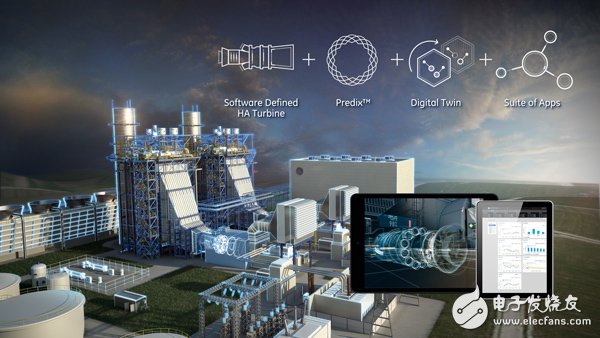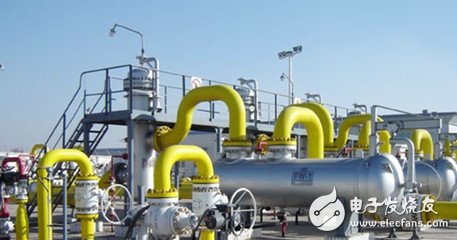Along with the industrial transformation needs brought about by major national strategies, all countries are paying attention to the improvement of industrial efficiency and the reduction of manufacturing costs, which will inevitably promote the new changes of the Internet of Things in the industrial field.
Industrial Internet of things is the concept of industrial equipment and IT convergence proposed by General Electric (GE) in the fall of 2012. The goal is to use high-performance equipment, low-cost sensors, the Internet, big data collection and analysis technology, etc. The combination significantly increases the efficiency of existing industries and creates new industries.
The wave of industrial internet of things
Now, the wave of industrial IoT led by veteran tech giants GE, IBM and Cisco is changing the industry with large assets.
With connected devices such as Nest and Sonos entering the mainstream, the Internet of Things has become one of the hottest technology trends in the past 20 years, and technology applications in this area have become a hot topic in the application field.
According to CB Insight, IoT startups have attracted a total of $7.4 billion in venture capital over the past six years.
Not only have household and consumer equipment developed, but industries with large assets such as manufacturing, logistics, mining, oil, utilities and agriculture have also begun to use IoT systems.

As IoT devices and dedicated sensors collect data at every stage of production, they can help industrial users around the world capture information from their own industrial assets to optimize work efficiency and save money.
Transforming the heavy asset industry
The current wave of industrial Internet of Things is led by traditional technology industry companies such as GE, IBM and Cisco. The Industrial Internet of Things will be the core business of these companies in the future.
In particular, GE, who pioneered the so-called "Industrial Internet" as early as 2012, announced that it would invest $1.5 billion in research and development funds.
GE not only developed the Predix platform for the industrial Internet, but also announced a partnership with Microsoft Cloud to accelerate the digital transformation of industrial users.
Maybe you were an industrial company before falling asleep last night, and today you wake up to become a software and data analysis company.
-- GE Global Chairman Immelt
In recent years, more and more startups have begun to develop sensors, cloud platforms, network infrastructure equipment and machine learning software to extract unknown information from massive amounts of data, which has greatly impacted industrial demand.
Nine leading industries
According to CB Insights' industrial IoT startups in recent years, we can conclude that the Industrial Internet of Things affects the asset-focused industries in nine major areas.
1. Manufacturing and supply chain industries
Such companies are using connected devices to enhance the ability to collect data during manufacturing and supply chain processes.
Such companies include CargoSense, which produces sensors for connecting to keep a close eye on moving products.
In addition to tracking temperature, humidity, pressure and luminosity, the sensors monitor vibration and tilt and record how the goods are handled during shipment on the pallet or container.
In addition, companies that produce robots, such as Momentum Machines and Rethink RoboTIcs, produce collaborative robots for manufacturing, and RoboCV, which produces robots for warehousing.
2. Mining industry and heavy industry
These companies are primarily companies that design sensor platforms that are used in industries such as oil, gas, mining and construction that require helmets.
There are also startups that are developing in specific vertical areas, such as companies that build sensor networks for oil and gas companies, such as Groundsensing (focusing on exploration wells), Tachyus (focusing on oil and gas operations) and Aptomar (focus on prevention). Leakage business) and so on.

There is also Skycatch, which uses drones to collect data for 3D rendering on construction sites.
3. Industrial wearable technology
Industrial IoT applications are an important topic for the development of wearable technology in the enterprise market and will become an indispensable tool for inspection in factory automation.
Some companies have already started in this area. For example, Human CondiTIon Safety has established a platform that combines wearable technology, artificial intelligence and building information modeling (BIM) technology to provide security for workers in the manufacturing, energy, warehousing, construction and other industries. .
XOEye Technologies provides collaborative work and communication solutions for manufacturing, construction and other industries through wearable hardware and software platforms to increase productivity.
4. Network infrastructure and sensor developers
Such companies are building sensors for networks and developing entities, laying the groundwork for the development of industrial IoT as a whole.
For example, Samsara and DorsaVi are developing industrial-grade sensors that can be applied to a variety of applications, including applications in freight management, machine equipment, energy and industrial-grade wearables.
Other companies such as SigFox have built wireless networks for industrial IoT, low-cost, low-cost wireless networks, connected to meters, smart watches or washing machines, and the infrastructure provided to make the so-called Internet of Things a reality.
5. Utilities and smart grid
Start-up companies in this space develop high-tech energy management, which enables more efficient distribution of electricity, gas and tap water. These companies are usually public utility companies.
For example, the three companies Trilliant, Tendril and BluePillar are smart meter service providers, mainly providing solutions for managing utility usage and data reporting for public facilities and large enterprises.
6, cloud platform
This kind of service provider that develops cloud platforms usually promotes the server platform or development environment provided by the company as a service that allows the Internet of Things and Industrial IoT companies to maintain and manage their device networks in the cloud.
Meshify and TempoiQ are typical representatives of such companies.
7, big data analysis and machine learning service platform
This category refers to technology companies that provide big data services or machine learning.
The services provided by these companies allow users to discover unknown information and make predictions, such as predicting the need to maintain equipment.
8. Transportation and transportation
Such startups are changing the prospects for connectable transportation. For example, Telogis and Greenroad, developed a freight tracking and monitoring platform that can obtain fleet communication data in real time.
And companies like Metromile are changing the business rules of freight insurance to provide mileage-based insurance services by applying hardware that can be connected to the vehicle. This technology has been applied to the Uber driver insurance business.
9. Industrial IoT Security
Companies in this field focus on cyber attack prevention in industrial IoT applications.
There has been a related hacking attack in the industrial Internet of Things: a German steel mill suffered a cyber hacking incident in 2014 and was subjected to “massive†physical damage.
It is reported that malware attacked the factory steel furnace control system at that time, so that the steel furnace could not be shut down properly.
Start-up companies like BasTIlle came into being to protect the network security of the factory. The company provides tools to scan the company's "airspace", which allows security personnel to detect and monitor all RF transmitters inside the enterprise to avoid threats.
We specialize in cable assembly overmolding. Our customized molded cables are built precisly following customers' spec.Experienced proposal can be offered to customers for evaluation by considering stable quality and competitive price.
Custom cable overmoldings improve the quality, look and functionality of many electrical cables. From battery interconnects and molded plugs to custom molded plugs and many other custom designed assemblies – ETOP is a premier custom cable overmolding supplier to OEMs.
we have internal design, prototype, and manufacturing the widest range of molded harnesses, also a diversified line of strain / flex reliefs and grommets.Molded Cables,Stranded Round Molded Cables,Molded Patch Cord Cable,4 Pole Waterproof Molded Cable,Waterproof Connectors
ETOP WIREHARNESS LIMITED , https://www.etopwireharness.com